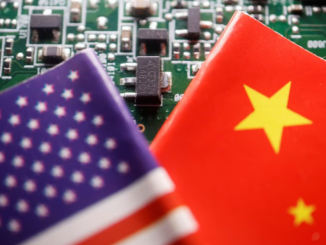
Philippine Defense Secretary Gilberto Teodoro Jr. and US Department of Defense Secretary Lloyd Austin III signed the General Security of Military Information Agreement (GSOMIA) at the Armed Forces of the Philippines General headquarters in Camp Emilio Aguinaldo, Quezon City. Photo courtesy of DComms
THE DAILY TRIBUNE | Published November 19, 2024
China is “paranoid” about the signing of a security agreement allowing the exchange of highly confidential military information between the Philippines and the United States.
This is how Defense Secretary Gilberto “Gibo” Teodoro Jr. described China’s opposition to the General Security of Military Information Agreement (GSOMIA), signed between Manila and Washington on 18 November at Camp Emilio Aguinaldo, Quezon City.
“If you weren’t paranoid, you wouldn’t comment about it, in so far as I’m concerned, because it is something bilateral between the United States and the Philippines. All of these actions — to me, prove the existence of some motive which is brought about by a closed political system,” Teodoro said in a media interview on Tuesday at Western Command headquarters in Puerto Princesa, Palawan.
“The political system where the external controls the internal political environment,” he added.
Shortly after the Philippines and the US finalized their GSOMIA, Chinese Foreign Ministry spokesperson Lin Jian emphasized that the only right choice for safeguarding national security as well as regional peace and stability is to uphold “good neighborliness and friendship.”
Lin Jian also stressed the need to “maintain strategic independence” amid territorial disputes between the Philippines and China in the West Philippine Sea (WPS).
“No military agreement, or defense and security cooperation, in whatever form, should target any third party or harm the interests of any third party. Nor should it undermine regional peace or exacerbate regional tensions,” Lin Jian said.
In response, Teodoro said the Philippines and the US are committed to upholding international laws.
“Insofar as the Philippines is concerned, in partnership with the United States, our main theme of cooperation here, aside from being treaty allies, stands for upholding international law and the fundamental values of freedom and democracy,” he said.
READ FULL ARTICLE
SOURCE: www.dailytribune.com
RELATED: Chinese FM responds to U.S., Philippines signing military intelligence sharing deal

ECNS | Published November 19, 2024
In response to the U.S. and the Philippines signing a security agreement that allows the two countries to exchange highly confidential military intelligence, Chinese Foreign Ministry spokesperson Lin Jian said on Monday that no matter what kind of military agreement is signed or what type of defense and security cooperation is conducted, it must not target third party, harm their interests, undermine regional peace, or escalate tensions.
The only correct choice for safeguarding national security and maintaining regional peace and stability is to adhere to good-neighborly relations and uphold strategic autonomy, Lin said.
The U.S. Defense Secretary Lloyd Austin and his Philippine counterpart, Gilberto Teodoro, signed the legally binding General Security of Military Information Agreement in Manila on Monday, AP reported, which claimed that the move is largely in response to China’s actions in Asia.





Be the first to comment